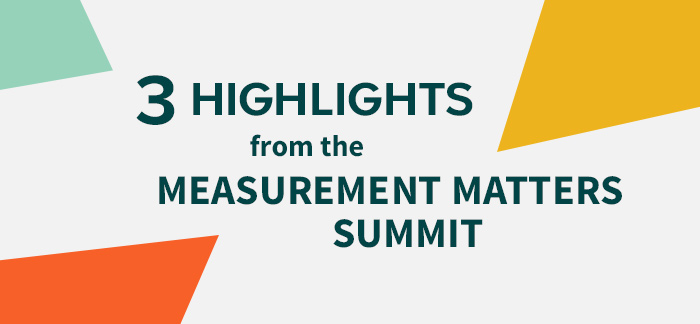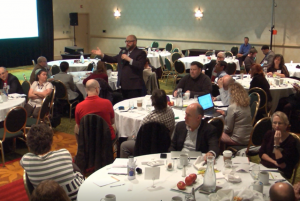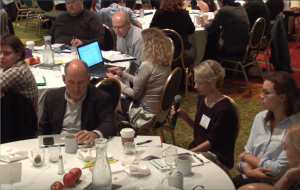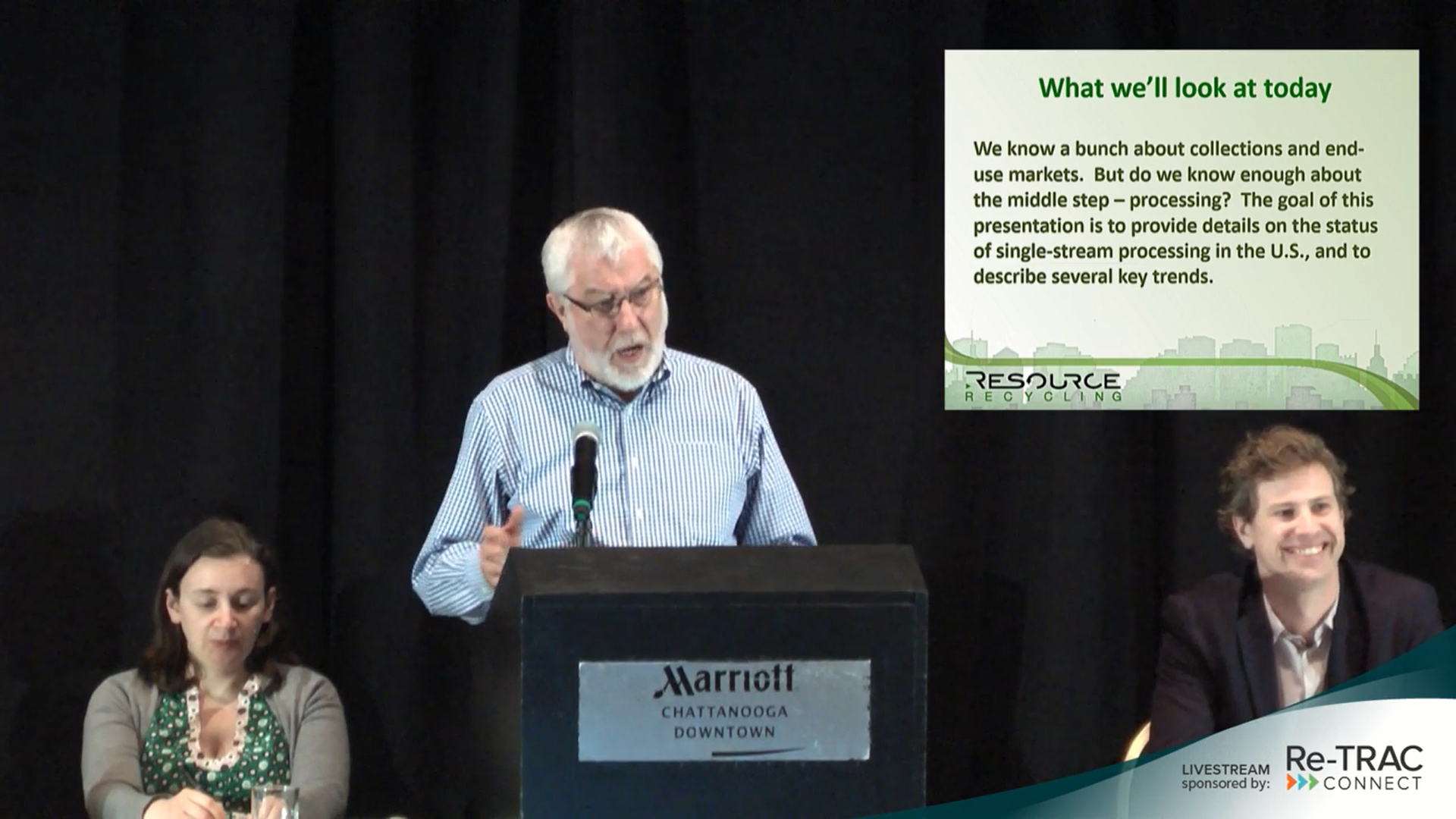3 Highlights from the Measurement Matters Summit


Thank you to the Tennessee Department of Environment & Conservation, the U. S. Environmental Protection Agency, and the Southeast Recycling Development Council for organizing a very successful Measurement Matters Summit.
Professionals from across North America converged in Chattanooga, Tennessee to discuss measurement issues and opportunities, data collection strategies, and effective data analysis. The event's success proved that people working on sustainable materials management recognize the importance of having good data and using it to measure progress, improve programs, and inform public policy.


Here are our top 3 highlights from the Measurement Matters Summit:
Engagement
It was inspiring to see more than 100 government and private-sector professionals come together to discuss measurement in sustainable materials management. The Summit was attended by representatives from national industry organizations, recycling organizations, state agencies, local governments, consultants, and MRF operators. This broad representation is an indication of just how important measurement is to industry stakeholders.
All three days included compelling presentations and table-top discussions. The final day of the Summit concluded with collaborative discussions aimed at drafting an action plan to achieve the goals set out by the Summit. Participants had the opportunity to share ideas and contribute to planning.
Interestingly, the Summit was also livestreamed to viewers from across North America. Twenty-one livestream participants signed up to watch the sessions and even had the opportunity to submit questions. The best part is that all presentations were also recorded so that Summit attendees with be able to watch them again. We encourage you to check out Rick Penner's presentation about the Municipal Measurement Program.

After all was said and done, event organizers, session presenters, and participants confirmed what had already been known for years: measurement matters.
Participants will have the opportunity to continue the conversation by attending the follow-up meeting which will be held at the Resource Recycling Conference in October.
State Measurement Program
The first day of the conference featured presentations about the State Measurement Program (SMP). The program is a collaborative effort among state agencies and the Environmental Protection Agency (EPA) that provides standardized data tracking forms to help users collect, manage, analyze, and report information related to solid waste and recycling/diversion programs.

Cheryl T. Coleman of the U.S. EPA kicked off the first session by providing a brief historical background of the SMP while also taking time to highlight some of the program's benefits. What's more, last year marked the highest number of participating states (38) since the program's inception.

The following session was presented by Re-TRAC's own Chris Ronson who demonstrated the program's components, features, and capabilities. He showed how the four data collection surveys are used to standardize state measurement and improve data analysis. He also described how participants contribute feedback which helps to guide the evolution of the SMP.
Rhonda Rollins of the U.S. EPA presented some of her favorite SMP reports including the economic benefits report and the tipping fees map. These are only two examples of the 40+ reports available to SMP participants.
The presenters encouraged all states to participate in the SMP to collectively share ways to improve, expand, or enhance their sustainable materials and waste management programs.
Municipal Measurement Program
Day 2 of the Summit featured a presentation by Re-TRAC President Rick Penner. As part of the Innovative Tools for Measuring Local Recycling Performance session, Rick introduced the Municipal Measurement Program (MMP). The MMP is a web-based service designed to provide standardized program assessment and information management tools to municipal program managers.
The MMP will be free to all municipalities. Participating municipalities will complete the program assessment survey to gain access to program performance reports, benchmarking reports, and program improvement recommendations.
The MMP will serve as a centralized database of municipal program information and serve as a valuable resource to counties/solid waste districts, state governments, and national organizations. The data will also feed into the State Measurement Program.
The MMP is scheduled to launch in the summer of 2018 so stay tuned.